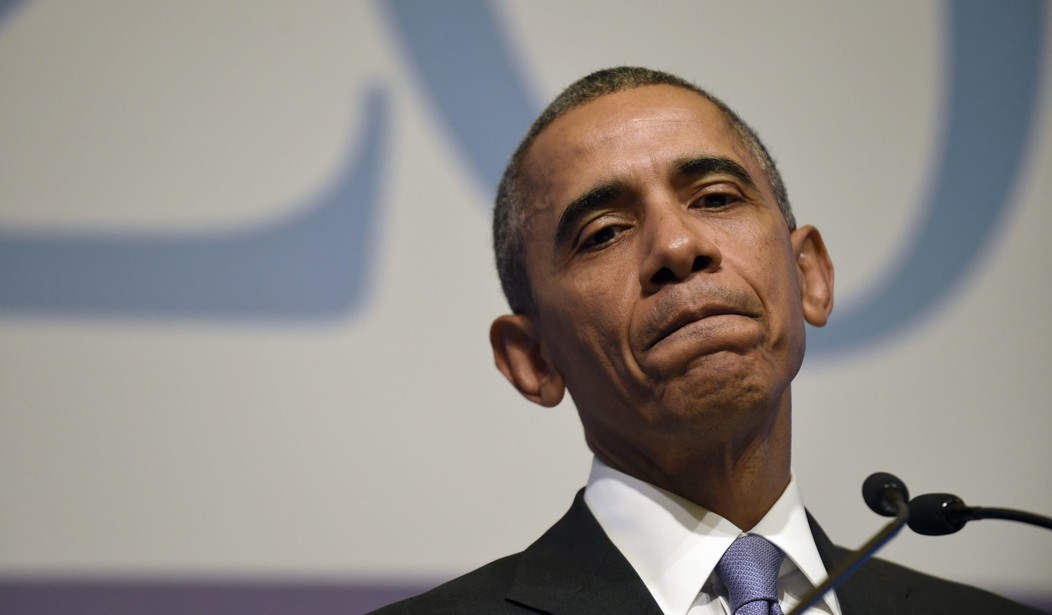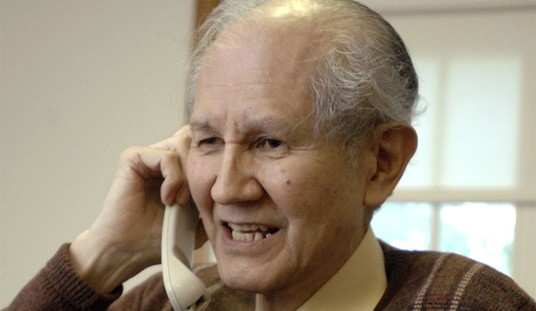The devastation of Syria, according to the Guardian, will be Obama’s legacy but it won’t entirely be the story of naive neglect. Some pundits think active incompetence must have played a part too. After all, when the administration conceived of an alliance with Russia as a way the conflict could be shifted to the negotiating table, any reasonable person could have foreseen the possible dangers. Events proved the administration completely miscalculated the way in which Putin and Assad would act. How could they not have foreseen it?
“The crux of the deal is a US promise to join forces with the Russian air force to share targeting and coordinate an expanded bombing campaign against Jabhat al-Nusra, al-Qaeda’s branch in Syria, which is primarily fighting the government of President Bashar al-Assad.” To say Obama was stabbed in the back would only be to repeat Samantha Power’s belated regret at Putin’s “uniquely cynical and hypocritical stunt”.
Obama should have seen it coming but didn’t. All too frequently he never does. Noting this, Charles Lister, writing at Foreign Policy, headlines his piece “Obama’s Syria Strategy Is the Definition of Insanity.” He says “none of this should come as a surprise, even as the consequences are potentially devastating.”
The Russian government, much less the Assad regime, has never been a reliable partner for peace in Syria. But even after Russia’s alleged bombing of the aid convoy, U.S. President Barack Obama’s administration is still plowing its energies into a deal that aims to work with the Russian government.
But Lister doesn’t accuse Obama of being actually a crazy person, just of acting like a one. Yet the suggestive evidence goes much further than Syria. Whether at social policy (which yielded riots), health policy (which resulted in Obamacare), or economic policy (which has created unemployment), the administration has shown a willingness to double down on failure. In many and varied contexts, it acts like it’s insane.
The explanation, as Michael Barone hints at, is the belief these setbacks are an acceptable price to pay for guaranteed re-election. Because liberal politics succeeds at electing candidates by promising impossible things, it promises them. That it fails to deliver is beside the point, because, quoting Dan McLaughlin at National Review, the Democrats believe their “party had unlocked the demographic code to a permanent majority.” Since misleading the electorate was the key to power, they would continue to turn it.
For all their blunders, “Republicans have lost four of the six presidential elections between 1992-2012” and Obama’s approval rating in the twilight of his term is over 50%. Since there’s no reason to hit the brakes and every incentive to step on the liberal gas, they do.
Two decades ago, lots of self-described moderates and even conservatives voted in Democratic primaries. Not so these days. The slump in Democratic primary and caucus turnout, from 38 million in 2008 to 31 million in 2016, was due to a sharp decline in turnout by self-described moderates.
Hillary Clinton’s move from her husband’s 1990s triangulation to her near-total acceptance this year of Bernie Sanders’s left-wing platform was a rational response to changes in the Democratic primary electorate.
Hillary Clinton doesn’t say what she thinks but what her focus groups say the constituency wants to hear. She just channels the base, consequences be damned. Political catastrophe alone, argues Barone, can shock the system back into sanity. Absent negative feedback that hits politicians where they live, no changes can be expected from the party of Washington. Barone’s hypothesis reassuringly asserts that liberal politics is only optionally crazy and that after a few electoral defeats things could return to normal. Sleep tight: we can leave the asylum any time we want. However, he may have overlooked a crucial possibility. In his classic experiment, Yale psychologist David Rosenhan found it was easy to join the ranks of the insane but almost impossible to leave it on terms the asylum would accept.
Rosenhan’s study was done in two parts. The first part involved the use of healthy associates or “pseudopatients” (three women and five men, including Rosenhan himself) who briefly feigned auditory hallucinations in an attempt to gain admission to 12 different psychiatric hospitals in five different states in various locations in the United States. All were admitted and diagnosed with psychiatric disorders. After admission, the pseudopatients acted normally and told staff that they felt fine and had no longer experienced any additional hallucinations. All were forced to admit to having a mental illness and agree to take antipsychotic drugs as a condition of their release.
This raises the possibility that dysfunction is rather more permanent than Barone believes. The Rosenhan experiment provides an explanation for the what could be called “the liberal trap,” where there is no way out of an irrational policy regime except on terms that irrational people will accept. In that line of argument, the persistence of Obama’s “insane” foreign and domestic policy is partly the result of being unable to change his policy to anything his constituency can mentally follow. There is no workable escape from Syria, for example, on any self-consistent basis the left would accept and therefore there is no escape.
Being the head lefty doesn’t mean they’re in there with him. It means he’s in there with THEM.
And maybe he can’t get out. Having promised them a fantasy universe, he has to pretend to attain it. By that logic “Hillary Clinton’s move from her husband’s 1990s triangulation to her near-total acceptance this year of Bernie Sanders’s left-wing platform” will make her president yet will confine her as much as it did Obama. The reader will have noted there is of course yet another possibility which will not here be discussed. Our political leaders act crazy because they are. But if that were so, how would we know?
Follow Wretchard on Twitter
Support the Belmont Club by purchasing from Amazon through the links below.
Recently purchased by readers:
Pre-Suasion: A Revolutionary Way to Influence and Persuade, By social psychologist Robert Cialdini. This book shines a light on effective persuasion and reveals that the secret doesn’t lie in the message itself, but in the key moment before that message is delivered.
Rubicon: The Last Years of the Roman Republic, In 49 B.C., the seven hundred fifth year since the founding of Rome, Julius Caesar crossed a small border river called the Rubicon and plunged Rome into cataclysmic civil war. In this book, author Tom Holland tells the story of Caesar’s generation, from Cicero, Spartacus, and Brutus, to Cleopatra, Virgil, and Augustus, and that of a great civilization in all its extremes of self-sacrifice and rivalry, decadence and catastrophe, intrigue, war, and world-shaking ambition.
The Kingdom of Speech, This book by storyteller/reporter Tom Wolfe is a paradigm-shifting argument that speech – not evolution – is responsible for humanity’s complex societies and achievements.
The Monster at the End of This Book, by Jon Stone.
Recommended:
Influence: The Psychology of Persuasion, By Robert Cialdini. This classic book on persuasion by Dr. Cialdini, the seminal expert in the field of influence and persuasion, explains the psychology of why people say “yes” – and how to apply these understandings.
Did you know that you can purchase some of these books and pamphlets by Richard Fernandez and share them with your friends? They will receive a link in their email and it will automatically give them access to a Kindle reader on their smartphone, computer or even as a web-readable document.
The War of the Words, Understanding the crisis of the early 21st century in terms of information corruption in the financial, security and political spheres
Rebranding Christianity, or why the truth shall make you free
The Three Conjectures, reflections on terrorism and the nuclear age
Storming the Castle, why government should get small
No Way In at Amazon Kindle. Fiction. A flight into peril, flashbacks to underground action.
Storm Over the South China Sea, how China is restarting history in the Pacific
Tip Jar or Subscribe or Unsubscribe to the Belmont Club









Join the conversation as a VIP Member